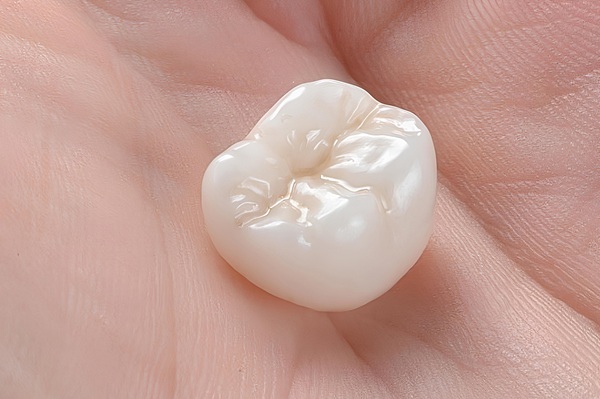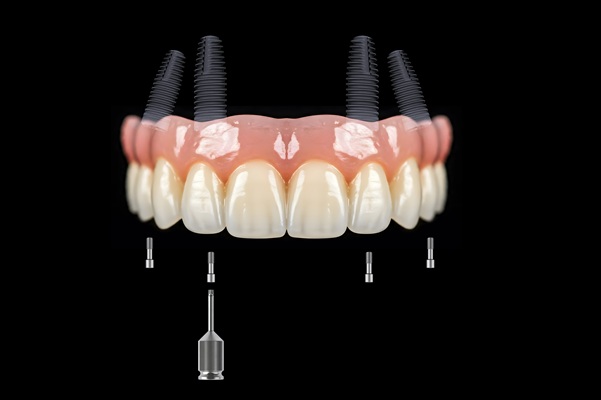What Is Pregnancy Gingivitis and How Do I Treat It?

Pregnancy gingivitis is similar to ordinary gingivitis that occurs outside of pregnancy. It is caused by hormonal changes — the increased levels of progesterone cause an elevated response to plaque, which is a sticky film formed by leftover food particles and saliva. Sometimes, these hormonal changes cause an increase in blood flow to the gum tissue. This increase in blood flow can cause the gums to be more irritable, sensitive and swollen.
Plaque leads to both ordinary gingivitis and pregnancy gingivitis. It contains millions of bacteria, and the bacteria in the plaque cause tooth decay and gingivitis. This is one of the reasons why it is important to brush, floss and use mouthwash. The combination of the three helps to fight off bacteria, keeping the entire mouth clean.
When a person fails to take proper care of their mouth, plaque and bacteria can make their way into the gums. The body sends antibodies to fight off the bacteria and that is what then leads to gum disease.
Symptoms of pregnancy gingivitis
A woman with pregnancy gingivitis may experience several symptoms, such as red, irritated and swollen gums. They may also notice some bleeding in their gums, typically after brushing or while eating. Sensitive and tender gums may also be a sign of gingivitis.
Some of these symptoms may be the result of other dental or health issues which is why it is important to let your dentist know if any of these problems occur.
When left untreated, gingivitis can lead to other serious dental issues. Gingivitis can be reversed with proper treatment and cleaning but if it is left untreated, it leads to other problems like periodontal disease.
How to treat and prevent pregnancy gingivitis
Below are some simple steps you can take to treat and prevent gingivitis during your pregnancy, as well as for the rest of your life:
- Floss at least once daily. Flossing helps remove the plaque that builds up between teeth
- Use anti-gingivitis toothpaste. When dealing with bleeding gums, consult a dentist to see what will work best without causing more harm
- Use anti-gingivitis mouthwash. This will add extra cleaning and protection for those hard-to-reach places
- Brush teeth for about two minutes, and make sure to brush the gums as well as the teeth
- Avoid sugary snacks. Plaque is a sticky substance and sugar just makes matters worse. Make sure to brush, floss, and use mouthwash after indulging in sugary treats. Rinse the mouth out thoroughly and gargle. This will ensure that every part of the entire mouth has been reached
The bottom line
Dental hygiene is important whether pregnant or not. Gingivitis is rather common, but, with the proper dental guidance and care, it can be treated. Always make sure to communicate with a dentist if any changes in oral health are noticed because little problems could turn into big problems if they are left untreated.
Are you dealing with any of the symptoms listed above? We invite you to contact our team of dental health professionals today to schedule a consultation.
Request an appointment here: https://www.tucsonazdentistry.com or call Advanced Family Dentistry at (520) 353-3002 for an appointment in our Tucson office.
Check out what others are saying about our services on Yelp: Read our Yelp reviews.
Recent Posts
Good oral hygiene is more important than ever now because you may not be going to your regular appointments. Under normal circumstances, it is recommended to visit your dentist every six months for cleanings and exams. However, because you may be missing appointments, you should take better care of your teeth than before. Read on…
You only get one set of adult teeth, and most older folks will tell you how much those teeth are missed when they are gone.Regular visits to the dentist are an important part of dental care, but what can you do to clean and maintain your teeth on a daily basis?These five easy tips can…
Having good oral hygiene is essential for overall health, healthy teeth and healthy gums. It will also save you money that you would have to spend on extensive procedures. Properly taking care of your teeth also comes with lots of benefits. Here is a look at 10 common signs of good oral health:When gums bleed…
While most people grow up hearing that they need to brush their teeth at least two times a day, once in the morning and right before you go to bed, they do not always keep that in practice. Of course, brushing right before you go to bed is a lot easier said than done. You're…


